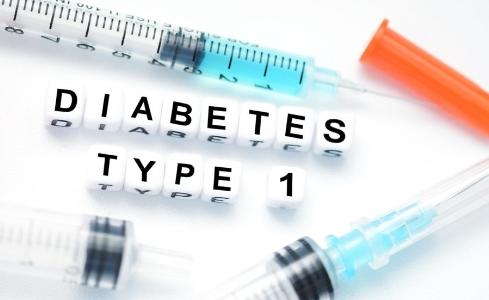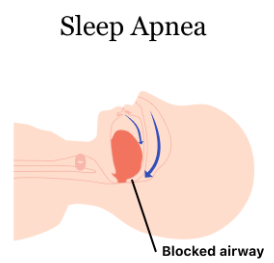
Introduction: What is Type 1 Diabetes
When you hear the word “type 1 diabetes,” you probably know that it has something to do with blood sugar. In this type of chronic autoimmune disease, your body can’t make its own insulin. Insulin is a hormone that helps regulate the blood sugar (glucose) levels in your body. Without insulin, glucose stays in the bloodstream and the cells can’t use it for energy. Normally, after eating a meal or snack, the amount of glucose in the blood (blood sugar) goes up immediately. When it does, the pancreas sends insulin into the blood. Insulin works like a key that opens the doors of the body’s cells to let the glucose in, stimulating the storage of glucose as glycogen in the liver, muscle, and fat cells.
In type 1 diabetes, your pancreas doesn’t make insulin. And in the absence of insulin, glucose can’t get into the cells. It stays in the blood, which leads to high blood sugar, causing hyperglycemia. Having too much sugar in the blood isn’t healthy and can cause some serious long-term complications, such as heart disease, kidney disease, brain stroke, eye complications, fast breathing, abdominal pain, vomiting, and dehydration.
However, we don’t know exactly what causes type 1 diabetes, but experts think it could be a combination of genetic and environmental factors. Unfortunately, there is no cure for diabetes. People with type 1 diabetes are bound to inject insulin in order to keep their blood glucose levels normal. But the good news is that Type 1 diabetes can be managed with effective remedies, which we have already mentioned in this article in the context of the top 10 diabetes treatments. But before you start watching this exclusive “Top 10 Diabetes Treatments” – list, let’s first reveal some of the most interesting facts and figures about Type 1 diabetes.
What is Type 1 Diabetes and how does it happen?
Type 1 diabetes is a lifelong condition also known as juvenile diabetes or insulin-dependent diabetes. In other words, we can say that Type 1 diabetes is a disease in which your body directly or indirectly attacks its own insulin-producing cells, so it can no longer be in a position to regulate insulin production or glucose absorption properly. This chronic condition may occur when your pancreas (a small gland behind the stomach) cannot produce insulin or makes very little insulin.
Role of Insulin in Type 1 Diabetes
The hormone insulin – produced by the pancreas – plays a vital role in controlling the amount of glucose in the blood. When you eat something, your pancreas releases insulin to help your body make energy out of glucose. At the same time, insulin also reduces your blood sugar levels naturally in the bloodstream (which is a condition known as hyperglycemia) by storing glucose in the form of glycogen in your liver, muscle, and fat cells.
Aside from that, this glucose-regulating hormone also has a number of important functions in the human body, particularly it has a strong effect on several other areas of the body, including the synthesis of lipids and regulation of enzymatic activity.
In the absence of insulin, your liver will break down its own fat and muscle into acids called ketones. This can lead to a serious long-term condition called diabetic ketoacidosis. From the above discussion, we hope you have got sufficient knowledge of Type 1 diabetes and how it happens. Let’s move forward with the symptoms, causes, diagnosis, and treatment of Type 1 diabetes.
Type 1 Diabetes: Symptoms, Causes, Risk Factors, Diagnosis, and Treatment
Some general signs, symptoms, causes, diagnosis, and treatment associated with Type 1 Diabetes, are as follows:
Symptoms
People who have type 1 diabetes may have
-
Urinate (pee) a lot, often at night
-
Thirsty throat
-
Unintentional weight loss
-
Blurry vision
-
Nausea & vomiting
-
Stomach pains
-
Numb or tingling hands or feet
-
Feel tired
-
Dry skin
-
Sores that heal slowly
-
More infections than usual
Causes
Type 1 diabetes is caused by several factors, which are mentioned below:
-
Overweight, obesity, and physical inactivity.
-
Insulin resistance.
-
Genes and family history.
-
Genetic mutations
-
Hormonal diseases
Risk Factors
Some of the most common risk factors associated with type 1 diabetes are as follows:
-
Age: In the past few years, type 1 diabetes has become gradually common in young individuals and children (less than 14 years) due to dietary factors, rates of obesity, and low levels of physical activity.
-
Family history: You are more likely to get type 1 diabetes if someone in your family has type 1 diabetes.
-
Genetics: The existence of specific genes may increase the risk of developing type 1 diabetes.
-
Viral exposure: The autoimmune destruction of islet cells may be triggered by the presence of viral infections (enterovirus infection)
Diagnosis and Tests
You can easily diagnose Type 1 diabetes by using the following blood tests:
-
Fasting blood glucose level – Diabetes is diagnosed if it is 126 mg/dL (7 mmol/L) or higher.
-
Random (non-fasting) blood glucose level – You may have diabetes if it is 200 mg/dL (11.1 mmol/L) or higher.
-
Oral glucose tolerance test – Diabetes is diagnosed if the glucose level is 200 mg/dL (11.1 mmol/L) or higher after drinking a special sugar drink.
-
Hemoglobin A1C (A1C) test – Diabetes is diagnosed if the result of the test is 6.5% or higher.
Treatment of Type 1 Diabetes
Successful treatment for type 1 diabetes was carried out through insulin injections or the use of an insulin pump, frequent blood sugar checks, medicines, carbohydrate counting, healthy food, and beverage
Complications
After some time, type 1 diabetes complications can affect major organs in the body. These organs include the heart, blood vessels, nerves, eyes, and kidneys. Having a normal blood sugar level can lower the risk of many complications.
Diabetes may cause a number of health complications if your blood sugar rises or falls too far…
-
Hyperosmolar hyperglycemic state (HHS): This life-threatening complication mainly affects people with Type 2 diabetes. It happens when your blood sugar levels are very high (over 600 milligrams per deciliter or mg/dL) for a long period, leading to severe dehydration and confusion. It requires immediate medical attention.
-
Diabetes-related ketoacidosis (DKA): This complication mainly affects people with Type 1 diabetes or undiagnosed T1D. It happens when your pancreas doesn’t make insulin. In the absence of insulin, your body will break down its own fat and muscle, resulting in weight loss.
-
Heart and blood vessel disease. Diabetes especially affects the network of your blood vessels which may lead to serious complications like arrhythmias, coronary heart disease, heart attack, high blood pressure, congenital heart defects, vascular dementia, and stroke.
-
Nerve damage (neuropathy): Neuropathy is a long-term complication of diabetes. This type of condition can injure the walls of the tiny blood vessels (capillaries) throughout the body. Common symptoms of diabetic neuropathies include pain, tingling, or numbness—loss of feeling—in the hands, arms, feet, and legs.
-
Kidney damage (nephropathy): Over time, diabetic nephropathy slowly damages blood vessels in the kidneys which filter waste from your blood. At the last stage, your kidneys need to be treated with mechanical filtering (dialysis) or transplant.
Management of Type 1 Diabetes Mellitus
Management of type 1 diabetes involves an integrative framework that includes the following:
-
Blood sugar monitoring – Blood sugar testing is the best way to manage type 1 or type 2 diabetes.
-
Nutrition – You can easily manage type 1 diabetes by taking healthy carbohydrates like fruit, vegetables, whole grains, beans, and low-fat milk.
-
Exercise: Fortunately, physical activity like walking, running, cycling, and yoga can help improve blood sugar levels in people with Type 1 diabetes.
Type 1 vs. Type 2 Diabetes:
Type 1 diabetes is an autoimmune disease in which your immune system destroys insulin-making cells in your pancreas. So the body can’t make insulin anymore. You need to take insulin shots every day to keep your blood glucose levels under control. On the other hand, in type 2 diabetes, your body doesn’t make enough insulin which is not sufficient to manage high blood sugar.
Lifestyle Changes for Type 1 Diabetes
Following a healthy lifestyle is very important in managing type 1 diabetes. You can easily control your diabetes by focusing on 5 key changes, i.e
-
follow a healthy diet
-
be physically active
-
stop smoking
-
lose weight if you are overweight
-
reduce your alcohol consumption
Top 10 Diabetes Treatments for Controlling Your Blood Levels
1. Total Diabetes Supply
Founded in 2010, Total Diabetes Supply is a premier healthcare store that offers high-quality diabetic supplies from top brands like BD Becton Dickinson, OneTouch Ultra, Bayer-Ascensia, Advocate, and Freestyle. You’ll find a huge collection of insulin syringes, glucose test strips, glucose monitoring devices, pen needles, and diabetic snacks to monitor and regulate your blood glucose levels. They also offer health monitors, enteral products, diagnostic and exam supplies, incontinence necessities, wound care products, physical therapy, and CPAP supplies at pocket-friendly prices.
Key Specs:
-
Identity: Experienced and trusted diabetes equipment supplier.
-
Best Selling Products: Glucose monitor kits, glucose test strips, insulin syringes.
-
Shipping: Free shipping for orders over $79.
-
Support: 24/7 excellent customer support.
-
Average cost: $2.09
2. Diabetic Warehouse
Diabetic Warehouse is a small health & wellness brand that sells premium-quality diabetic care products while ensuring exceptional customer service. They offer a wide selection of diabetes test strips, blood glucose meters, infusion sets, and diabetes pen needles for personalized management of chronic juvenile diabetes or insulin-dependent diabetes.
Key Specs:
-
Identity: Premier diabetes care brand.
-
Best Selling Products: Diabetes test strips, glucose meters, lancets.
-
Shipping: Free shipping on all orders.
-
Support: Top-notch customer support.
-
Average cost: $10.99
3. Diabetic Sock Club
Diabetic Sock Club offers America’s #1 non-binding diabetic socks for men and women in different shapes, forms, and colors. These non-binding USA-made diabetic socks are crafted with a unique combination of comfortable, breathable, and robust materials to relieve chafing, irritation, and foot pain. Aside from that, these socks work well for diabetics with plantar fasciitis and fat pad atrophy.
Key Specs:
-
Identity: High-end compression socks supplier.
-
Best Selling Product: Non-binding diabetic socks.
-
Guarantee: 1-year replacement guarantee.
-
Shipping: Free shipping.
-
Support: Trustworthy customer support.
-
Average cost: $39.99
4. Diabetic Kitchen
Diabetic Kitchen is a small health & wellness brand that provides recipes, health tips, snacks, and baking mixes to help regulate your blood glucose levels. They create a premium range of keto-friendly mixes and ready-to-eat foods by using a unique combination of fiber, protein, and healthy fats.
Key Specs:
-
Identity: Your one-stop shop for high-quality diabetic care foods.
-
Best Selling Products: Sugar-free toppings, Pepperoni Chips, low-carb foods.
-
Support: Dedicated customer support.
-
Average cost: $11.28
5. Walgreens
Walgreens is a diabetic care brand that offers a wide range of high-quality health & wellness products from top brands like Abbott, Ascensia Diabetes Care, Becton Dickinson, OneTouch, and Splenda. Here you’ll find premium-quality diabetic socks, glucose meters, blood glucose test strips, glucose tablets, lancing devices, and insulin cooling cases.
Key Specs:
-
Identity: Best online shopping site for diabetic care supplies.
-
Best Selling Product: Diabetic test strips.
-
Support: Reliable customer support.
-
Average cost: $8.99
6. Pharmashopi
Pharmashopi is an online pharmacy that offers more than 10,000 pharmacy products on the market from top brands like Anaca3, Caudalie, Nuxe, Bioderma, Vichy, La Roche-Posay, Klorane, Somatoline. This online store provides a premium selection of blood glucose monitoring systems, food supplements, and beauty treatments to improve your overall health & wellness.
Key Specs:
-
Identity: Certified online pharmacy.
-
Best Selling Product: glucose monitors.
-
Support: Loyal customer support.
-
Average cost: €2.95
7. Medex Supply
Medex Supply is a healthcare brand that offers a large selection of medical supplies for diabetic patients. They carry a premium selection of high-quality blood glucose meters, infusion pumps, insulin syringes, lancing devices, defibrillator pads, neurological diagnostic instruments, and pulse oximeters at competitive prices.
Key Specs:
-
Identity: Best online medical supplies store.
-
Best Selling Product: Blood glucose control solutions.
-
Support: Dedicated customer support.
-
Average cost: $3.15
8. Medlab Gear
Medlab Gear is a small health equipment brand that sells premium-quality diabetic supplies to help you live a happier, healthier, more productive life. Their catalog comprises glucose test strips, pen needles, insulin syringes, vial boxes, and injection liquids, incontinence supplies, CPAP machines, diagnostic equipment.
Key Specs:
-
Identity: Leading supplier of diabetic care products.
-
Best Selling Product: Glucose control solutions.
-
Support: Friendly customer support.
-
Average cost: $3.99
9.1MG
1MG is India’s leading online pharmacy that provides top-quality healthcare products & medicines to help you manage your blood sugar levels. Here you’ll discover a huge collection of diabetes monitoring devices, sugar substitutes, nutrition supplements, insulin coolers, and diabetic footwear.
Key Specs:
-
Identity: India’s leading healthcare platform.
-
Best Selling Product: Continuous glucose monitors
-
Support: Excellent customer support.
-
Average cost: $1.29
10. Asset Pharmacy
Asset Pharmacy is Nigeria’s leading online pharmacy where you’ll discover an exciting range of high-quality diabetes medication and treatments. They offer a wide collection of anti-diabetes tablets to control your blood sugar levels.
Key Specs:
-
Identity: Best online platform for diabetes medication.
-
Best Selling Product: Diabetes tablet.
-
Support: Excellent customer support.
-
Average cost: $5.88
Conclusion
Even after a lot of research, unfortunately, type 1 diabetes has no cure. To reduce the risk of further complications, patients are required to manage the amount of sugar in the blood using insulin injections, medicines, and healthy diet plans.
FAQs
Why is Type 1 Diabetes called juvenile diabetes?
Type 1 diabetes is also called insulin-dependent or juvenile diabetes because it usually develops in children, teens, and young adults. However, it can happen at any age.
How many people are currently suffering from Type 1 Diabetes?
According to statistics and data analysis, Type 1 diabetes seems less common than type 2—about 5-10% of people with diabetes have type 1.
When does type 1 diabetes normally occur?
Type 1 diabetes usually starts before 15 years of age.
Does it run in families?
You are more likely to get Type 1 diabetes if you have a family health history of diabetes.
What are the basic symptoms of Type 1 Diabetes?
Some of the most common symptoms experienced by patients are nausea, vomiting, or stomach pains, increased hunger, fatigue, blurred vision, numbness or tingling in the feet or hands, and unexplained weight loss.
Is there any cure for type 1 diabetes?
Unfortunately, there is no cure for type 1 diabetes.
Which is worse, type 1 or 2 diabetes?
Type 1 diabetes is more harmful than type 2 because, in this condition, the pancreas makes little or no insulin. Therefore it can lead to long-term complications.
How does insulin work with glucose?
Insulin is an essential hormone. Particularly it helps your body turn food into energy, controls your blood sugar levels, and prevents hyperglycemia. Without insulin, your body cannot access enough sugar to function properly, so your liver begins to turn some of the body fat into acids called ketones.
What will happen if I stop taking insulin?
Some days you may feel hungry, thirsty, tired, or exhausted.
How long can your body survive without insulin?
Roughly 3 to 4 days.
What are the symptoms of diabetic ketoacidosis (DKA)?
If your blood glucose is very high, you may experience a serious emergency condition called diabetic ketoacidosis (DKA). In diabetic ketoacidosis, your body burns fat instead of glucose for energy.
What is the main purpose of insulin?
The main purpose of insulin is to help your body turn food into energy and control your blood sugar levels. It is also very important for transporting intracellular glucose to insulin-dependent cells/tissues, such as the liver, muscle, and adipose tissue.
What is the relation between insulin and Type 1 Diabetes?
Type 1 Diabetes is a condition in which your body doesn’t make enough insulin or your body doesn’t use insulin correctly. “As you’re all aware, Insulin has a number of important functions in the human body, especially in the control of blood glucose levels and preventing hyperglycemia.
Can Type 1 Diabetes affect your pancreas just like Type 2 Diabetes?
Well, the answer is of course NO! In type 1 diabetes, your pancreas is no longer able to produce insulin. On the other hand, in type 2 diabetes, your pancreas initially produces insulin, but the cells of your body are unable to make good use of the insulin.



